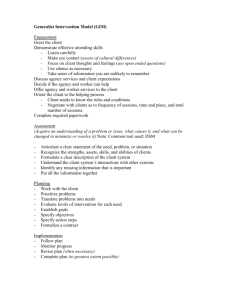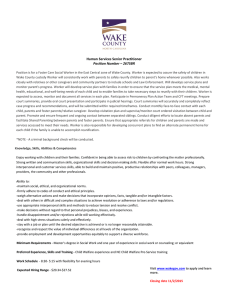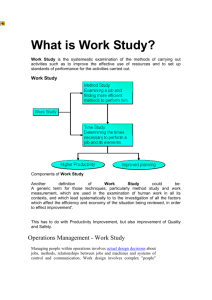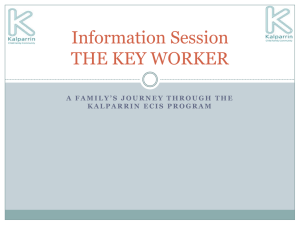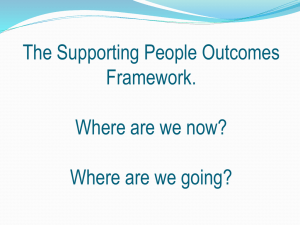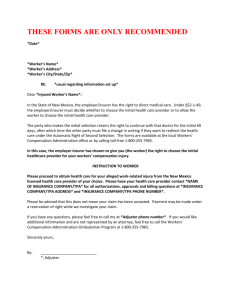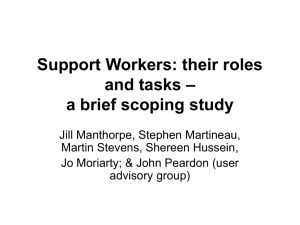Air Force Biomedical Sciences Corps Clinical Social Worker
advertisement
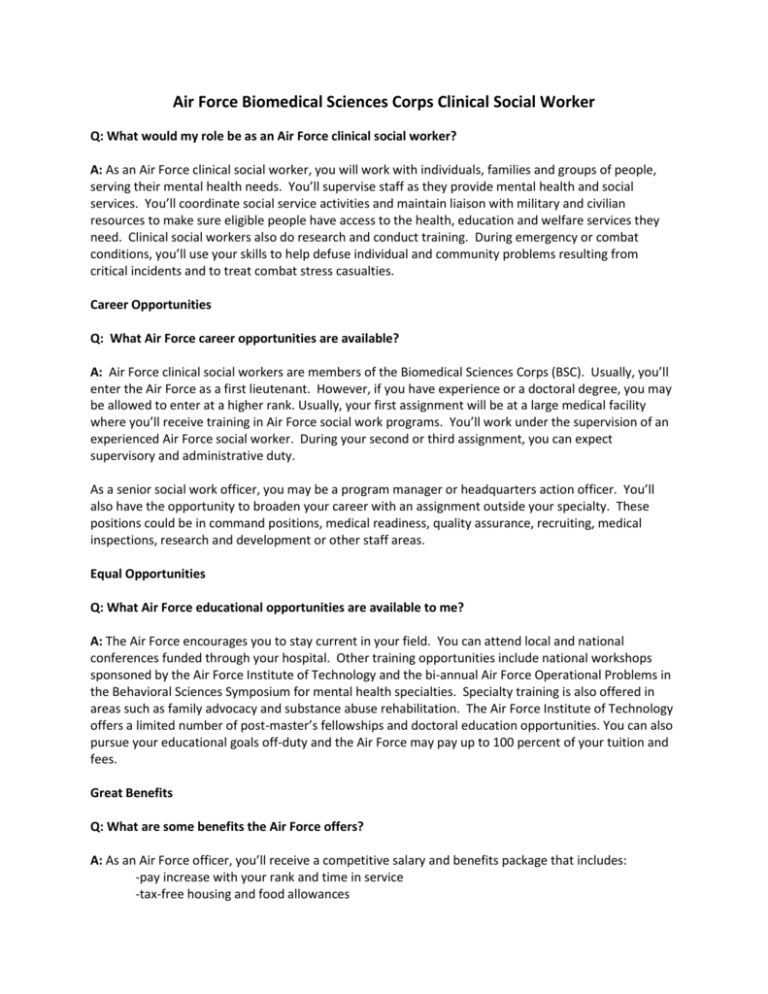
Air Force Biomedical Sciences Corps Clinical Social Worker Q: What would my role be as an Air Force clinical social worker? A: As an Air Force clinical social worker, you will work with individuals, families and groups of people, serving their mental health needs. You’ll supervise staff as they provide mental health and social services. You’ll coordinate social service activities and maintain liaison with military and civilian resources to make sure eligible people have access to the health, education and welfare services they need. Clinical social workers also do research and conduct training. During emergency or combat conditions, you’ll use your skills to help defuse individual and community problems resulting from critical incidents and to treat combat stress casualties. Career Opportunities Q: What Air Force career opportunities are available? A: Air Force clinical social workers are members of the Biomedical Sciences Corps (BSC). Usually, you’ll enter the Air Force as a first lieutenant. However, if you have experience or a doctoral degree, you may be allowed to enter at a higher rank. Usually, your first assignment will be at a large medical facility where you’ll receive training in Air Force social work programs. You’ll work under the supervision of an experienced Air Force social worker. During your second or third assignment, you can expect supervisory and administrative duty. As a senior social work officer, you may be a program manager or headquarters action officer. You’ll also have the opportunity to broaden your career with an assignment outside your specialty. These positions could be in command positions, medical readiness, quality assurance, recruiting, medical inspections, research and development or other staff areas. Equal Opportunities Q: What Air Force educational opportunities are available to me? A: The Air Force encourages you to stay current in your field. You can attend local and national conferences funded through your hospital. Other training opportunities include national workshops sponsoned by the Air Force Institute of Technology and the bi-annual Air Force Operational Problems in the Behavioral Sciences Symposium for mental health specialties. Specialty training is also offered in areas such as family advocacy and substance abuse rehabilitation. The Air Force Institute of Technology offers a limited number of post-master’s fellowships and doctoral education opportunities. You can also pursue your educational goals off-duty and the Air Force may pay up to 100 percent of your tuition and fees. Great Benefits Q: What are some benefits the Air Force offers? A: As an Air Force officer, you’ll receive a competitive salary and benefits package that includes: -pay increase with your rank and time in service -tax-free housing and food allowances -comprehensive health and dental care -low-cost life insurance -no loss of seniority when moving to other hospitals or clinics -30 days of vacation with pay each year-beginning the very first year Qualifications/Credentials Q: What credentials do I need to qualify? A: To be a member of the Air Force health care team, you must have a master’s degree from an accredited graduate school of social work and a state license to practice social work. It’s desirable to have certification by the Acedemy of Certified Social Workers. Clinical social workers who have their Board of Certified Diplomat status qualify for additional board certification pay each month. For More Information Q: I want more information about becoming an Air Force clinical social worker-where can I get it? A: Contact an Air Force health professions recruiter for details, or call 1-800-423-USAF for an information packet. Visit our web site at AIRFORCE.COM TSgt Donald S. Muehr 3030 Matlock Rd., Ste. 210 Arlington, TX 76015-2936 (817)658-9731 or 640-6569 Donald.muehr@rs.af.mil



